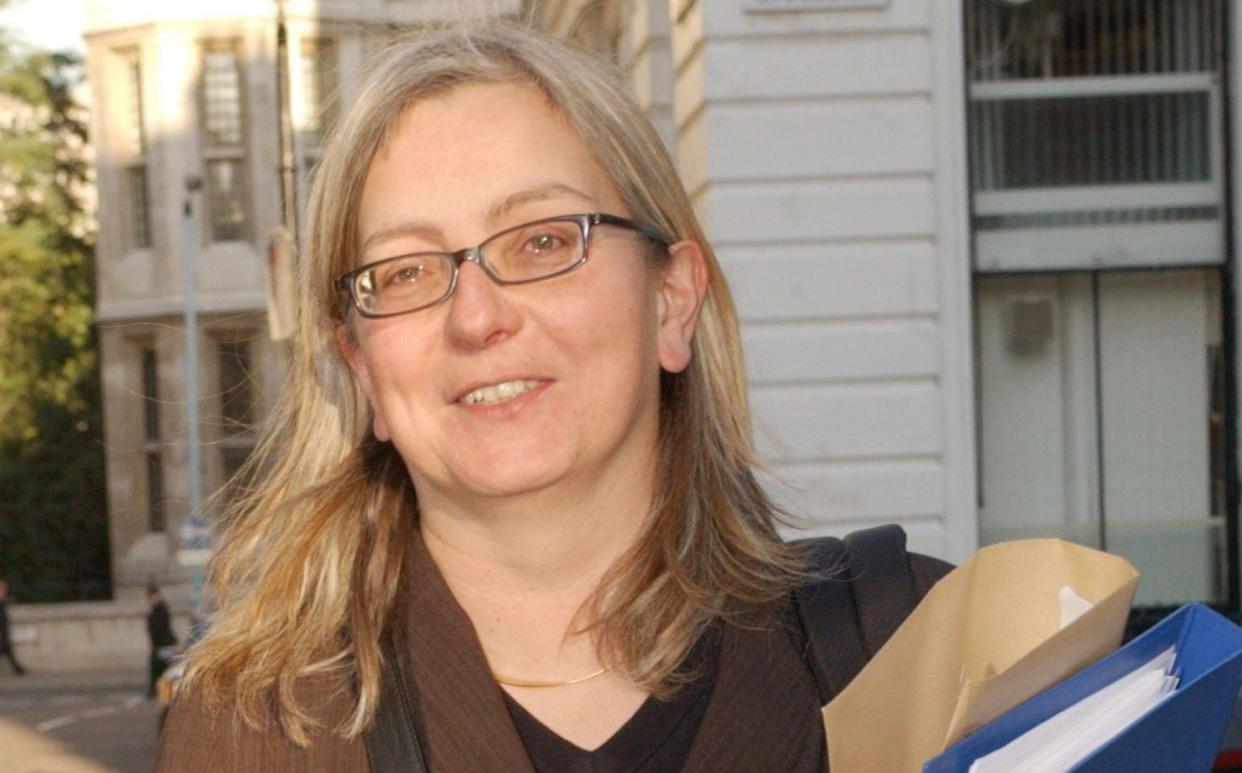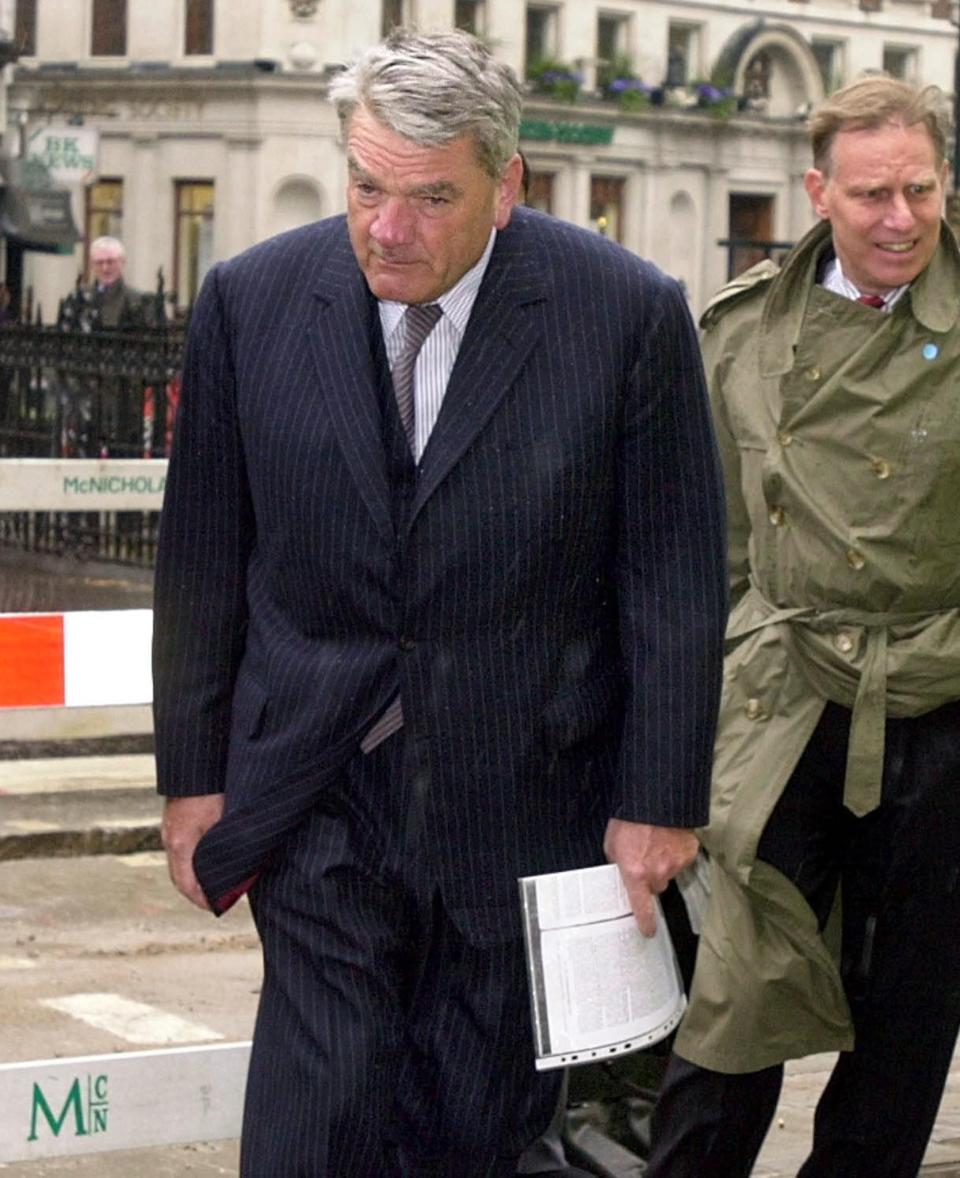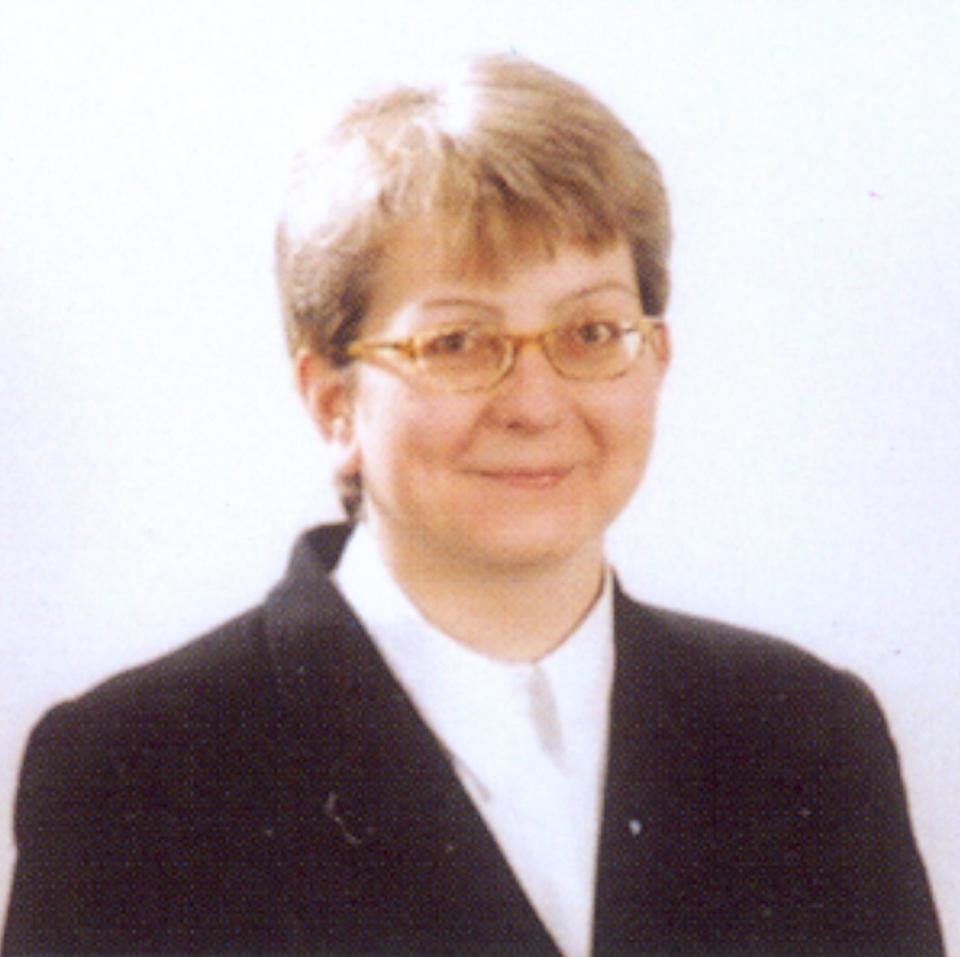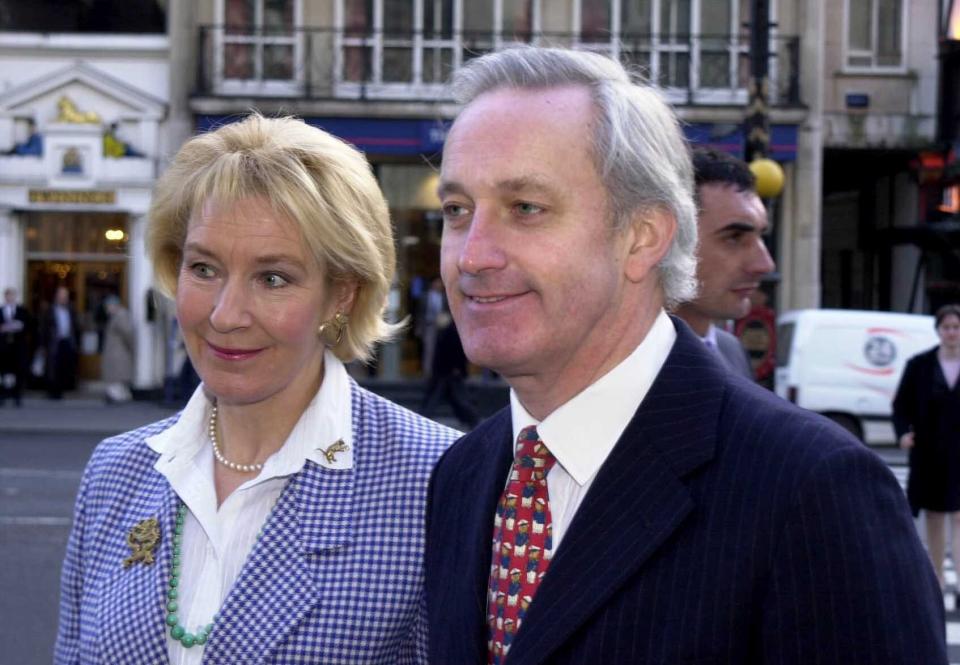Heather Rogers, leading media and defamation lawyer who acted for Deborah Lipstadt against David Irving – obituary

- Oops!Something went wrong.Please try again later.
- Oops!Something went wrong.Please try again later.
- Oops!Something went wrong.Please try again later.
- Oops!Something went wrong.Please try again later.
Heather Rogers, KC, who has died from a pulmonary embolism aged 64, was one of the most talented media and defamation lawyers of her generation and appeared in a string of high profile cases, most memorably as junior defence counsel to Richard Rampton (her longtime friend and mentor) in the Lipstadt/Irving libel trial in 2000.
In her book Denying the Holocaust (1993), the American historian Deborah Lipstadt had called the English author David Irving “one of the most dangerous spokespersons for Holocaust denial”. Choosing to represent himself at the High Court trial after suing Lipstadt and her publishers Penguin for libel, Irving got himself into several spectacular tangles, once inadvertently addressing the judge, Sir Charles Gray, as “Mein Fuhrer” during his closing submissions, prompting gasps of disbelief from the rest of the courtroom.
Gray’s devastating judgment against Irving was based on Heather Rogers’s synthesis of the historical evidence and was widely considered a tour de force, destroying Irving’s credibility as a historian of the Third Reich and leaving him with a £2 million bill for costs.

In her subsequent account of the case, History on Trial (2005), which was later made into the film Denial (written by David Hare), Deborah Lipstadt paid tribute to Rogers’s “down-to-earth, no-nonsense quality”; her “calm but determined manner and evident empathy”; and her “uncanny ability to put her hands on the precise document at precisely the right time”.
The film’s focus could never be Rogers’s painstaking and vitally important analysis of the documents but the outcome of the case (and indeed of all her cases) was always far more important to her than any credit she might or might not receive.
Heather Rogers was born on June 3 1959 in Wolverhampton, where her father George worked as a carpenter and her mother Olga (nee Ingram) as a secretary. After Wolverhampton Girls’ High School she read Law at the London School of Economics, graduating with a First.
Inspired to become a barrister by watching TV courtroom dramas and determined “to fight for truth and justice”, she later came top of her year in her Bar exams with what was said to be the highest ever mark.
Called to the Bar in 1983, she was taken on as a tenant at Dr Johnson’s Buildings, where she had been Geoffrey Robertson’s first pupil, before moving in 1985 to 10 South Square, the set now known as 5RB. There would be several more moves between leading media sets in the years to come.
In 2000 she was one of the founders of Matrix Chambers, where she stayed until she joined Doughty Street Chambers in 2009, then 1 Brick Court (Richard Rampton’s set) in 2015, and when that set folded in 2019 she returned to Doughty Street, where she remained.

A specialist in libel defence work, Rogers cut her teeth as a young barrister working as an in-house lawyer on Robert Maxwell’s London Daily News. Her pre-publication advice was considered second to none.
In 1988 she apologised to the Queen on behalf of the Sun newspaper for publishing a leaked royal family photograph of Princess Beatrice and agreed that it would pay £100,000 to four charities chosen by the Queen in settlement of the case.
She was junior counsel to notable QCs such as George Carman – whose son and biographer Dominic Carman later described her as “the skilful pen behind many a libel silk’s sword” – and Charles Gray, who led her in the case of Derbyshire County Council v Times Newspapers (1993), in which the House of Lords ruled that governmental bodies can not sue for libel as they should be open to uninhibited public criticism.
Gray also led Heather Rogers in Esther Rantzen v Mirror Group (1994), in which they succeeded in getting the damages awarded reduced from £250,000 to £110,000, and in Elton John v Mirror Group (1997), in which the Court of Appeal said it was legitimate to draw juries’ attention to standard tariff awards in personal injuries cases as a means of limiting the size of libel awards.
Led by Carman defending Mohammed Al Fayed against Neil Hamilton, it was Heather Rogers who devised the famous characterisation of Hamilton as being “on the make and on the take”.

Obeying the Bar’s cab rank rule, she occasionally acted for libel plaintiffs, appearing as junior counsel to Richard Rampton for George Galloway in his successful action against the Telegraph in 2006 over reports that had been in the pay of Saddam Hussein. And she was led by John Kelsey-Fry for Roman Polanski in his successful case against Condé Nast over an article in Vanity Fair claiming he had tried to seduce a Scandinavian model on his way to Sharon Tate’s funeral by claiming he could make her “another Sharon Tate”.
In 2003 Heather Rogers again found herself in the media spotlight as counsel to the journalist Andrew Gilligan at the Hutton Inquiry, set up to establish the circumstances surrounding the death of David Kelly, the former UN weapons inspector in Iraq who committed suicide after being named as Gilligan’s source for his BBC Today programme report that the government had “sexed up” the dossier into Iraq and its weapons of mass destruction.
After taking Silk in 2006, Rogers defended the Sunday Times over allegations that the cyclist Lance Armstrong had cheated by taking performance enhancing drugs, an unusual case in which damages were paid to the plaintiff but later returned after he confessed his guilt.
In 2010 she was the co-architect of Lord Lester’s draft Defamation Bill, which was hailed by the government as “the most significant driver of reform” and which greatly informed the subsequent Defamation Act (2013).
More recently she had acted for the nephews of Sir Frederick Barclay over allegations that they had planted listening devices to spy on him and his daughter at the Ritz hotel, and for the Media Lawyers’ Association in Serafin v Malkiewicz, the Supreme Court case which confirmed the reduced burden on journalists advancing a “public interest” defence to publication, as introduced by the Defamation Act.
She had been due to represent the Stonewall trustee Simon Blake and the drag artist Crystal (Colin Seymour) in their libel action against the actor and political activist Laurence Fox over his tweets calling them “paedophiles” and his counterclaims against them for describing him as a “racist”.
Heather Rogers’s clarity of expression and ability to make the right point at the right time made her highly effective when speaking on her feet, when she was apt to kick off her shoes beneath the table, out of sight of the judge.
Ferociously clever but also notably warm, kind, generous and unpretentious, she enjoyed the arts, literature, theatre and music, but, always loyal to her working class roots, preferred Greggs to Pret a Manger and was as happy listening to cheesy pop as she was to anything classical.
She is survived by her wife, Julie Edwards, the film and television producer whom she married four years ago after more than 20 years together, and by her younger brother Paul and nephew Jason.
Heather Rogers, born June 3 1959, died October 18 2023

